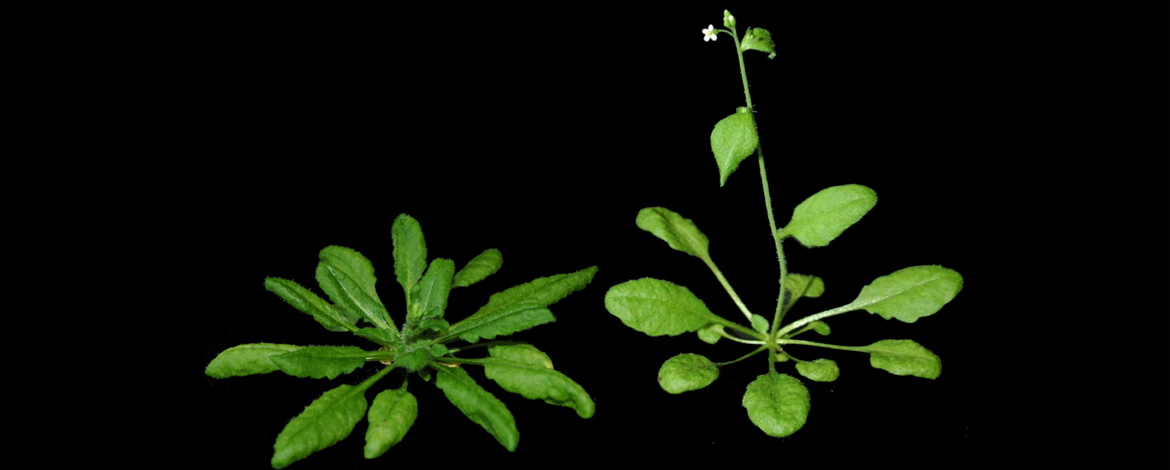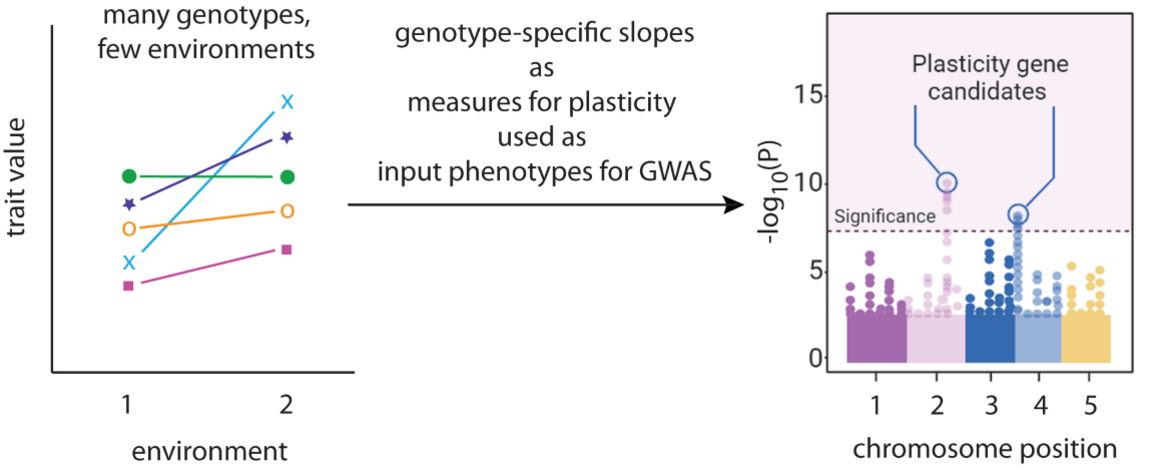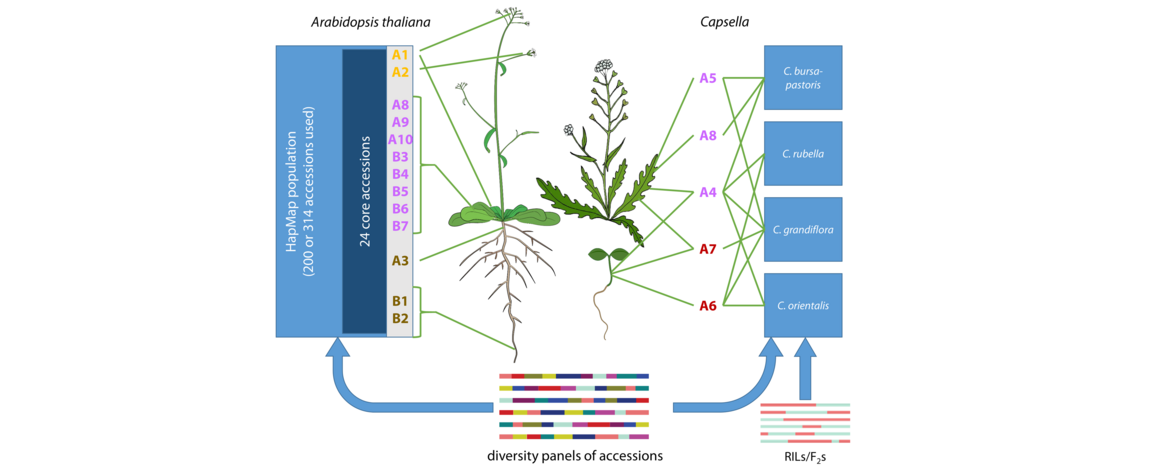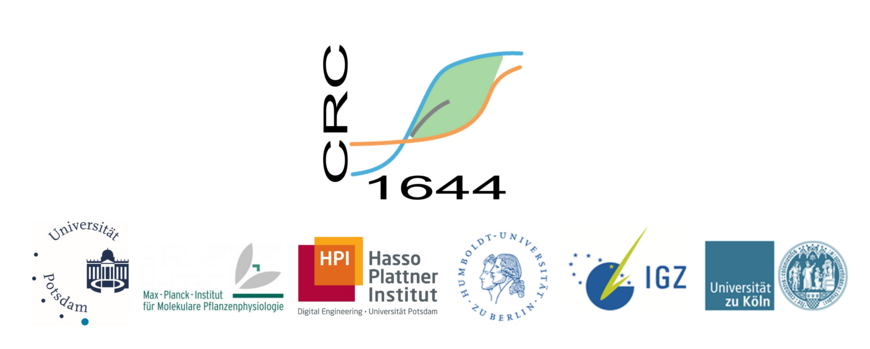Collaborative Research Centre 1644
Phenotypic plasticity in plants
Mechanisms, constraints and evolution
Plants have colonised almost every habitat on earth. They are the dominant organismal kingdom by biomass, and all animal life depends on them. A major feature that has enabled this success is the remarkable ability of plants to adjust their growth and development to different environments. The ability of a given genotype to generate different phenotypes in different environments is termed phenotypic plasticity. Such plasticity is a universal feature of life, and understanding its molecular basis and evolution is a fundamental goal in biology. This understanding has major implications for predicting plant responses to a changing climate and environment and for accelerating plant breeding tailored to specific environments. Our CRC pursues an interdisciplinary research program to tackle this key challenge across multiple scales of biological organization.
To learn more about each project, visit our project pages for clusters A, B and Z.
Participating institutions:
University of Potsdam, Institute for Biochemistry and Biology (UP)
Humboldt-Universität zu Berlin, Institute for Biology (HUB)
Max Planck Institute of Molecular Plant Physiology, Potsdam (MPI-MP)
Leibniz Institute of Vegetable and Ornamental Crops, Großbeeren (IGZ)
Hasso Plattner Institute, Potsdam (HPI)
University of Cologne, Cologne (UoC)
Speaker of the Collaborative Research Centre:
Prof. Dr. Michael Lenhard
Institute for Biochemistry and Biology
University of Potsdam
Karl-Liebknecht-Str. 24-25, House 26
14476 Potsdam
Germany
Tel.: +49-331-9775580
email: michael.lenharduuni-potsdampde
CRC 1644 Coordination Office
Dr. Nina Freimuth
email: nina.freimuthuuni-potsdampde





